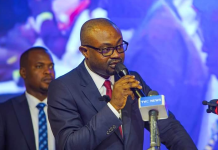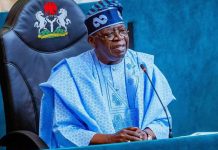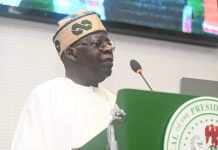The Federal Government has been charged to end the industrial action embarked upon by the Academic Staff Union of Universities (ASUU).
The academic body which started its strike last year November has thwarted academic activities in tertiary institutions across the country.
POLITICS TIMES recalls that ASUU which had earlier suspended its strike resumed the industrial action to press home its demands on the revamp of higher institutions in the country.
Several meetings between ASUU and delegations of the government have severally met brick walls.
Calling for an end to the strike, Saraki said the youths of the country were those negatively affected by the stance of the government and disenfranchising many of them whom are registered to vote in their universities — but are now stuck in their homes.
The top lawmaker stated this on Wednesday in a statement signed by his Special Adviser on Media and Publicity, Yusuph Olaniyonu.
“In November 2016, the Senate intervened in the ASUU strike and met with the officials of the Ministries of Education and Labour, Employment and Productivity and the Academic Staff Union of Universities,” the statement read.
“At that meeting, which was attended by the Minister of State for Education Anthony Anwuka and Permanent Secretary, Ministry of Labour and Productivity in the National Assembly, we agreed that the Federal Government should work to implement the agreement that it reached with ASUU in 2009, and subsequently, we set up a sub-committee to liaise with both ASUU and the Federal Government on this issue.
“The Federal Government must immediately work to address the demands of the Academic Staff Union of Universities (ASUU), because this issue goes beyond negotiations.
“It is affecting the education of Nigeria’s students, and disenfranchising many of them from participating in the upcoming general elections.
“Make no mistake, we cannot continue this system whereby our universities will be frequently shut down, thereby slowing down the education of our young people — and creating negative bottlenecks that place unnecessary stress on our universities.
“In another vein, our youth make up over 51 percent of registered voters. What does this mean for our electoral process, when young students who are registered to vote in their academic institutions, cannot do so because their schools are shut down? This is unacceptable.
“In this regard, I call on the Federal Government to immediately work on meeting the demands of ASUU and honouring all its prior commitments.
“On our part, the Senate will continue to work to ensure the education sector is strengthened — and we are ready and willing to collaborate with both the Federal Government and ASUU to end this strike, and ensure that it does not become a recurrent issue,” it added.
Meanwhile, Atiku Abubakar, the 2019 presidential candidate of the Peoples Democratic Party (PDP) has pledged to end the strike by the academic body on his first day in office.
This is if he is elected president in next week’s presidential election.






